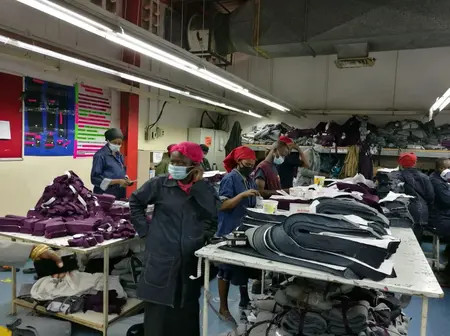Kenya’s textile industry faces mounting uncertainty after United States President Donald Trump vowed to introduce a ten percent universal tariff on all imports if elected, a proposal that analysts warn could wipe out key advantages Kenyan apparel exporters enjoy under the African Growth and Opportunity Act.
The looming policy shift has sparked concern among major local manufacturers including Cetina Garments and Chelangat Textiles whose business models depend heavily on duty free access to the United States market.
Industry insiders say the proposed tariff could sharply erode the price competitiveness of Kenyan made apparel, potentially triggering order cancellations and factory downsizing.
Kenyan exporters currently leverage AGOA benefits to supply large US retailers with competitively priced products, a sector that employs tens of thousands of workers in industrial parks such as the Athi River Export Processing Zone.
A ten percent duty would raise costs for buyers prompting some to shift orders to lower cost Asian producers, undercutting Kenya’s hard won market share.
Cetina Garments executives argue that while Kenyan factories have invested heavily in improving quality and compliance to meet US standards, pricing remains a critical determinant in procurement decisions by American brands.
Chelangat Textiles warns that uncertainty surrounding US trade policy is already prompting some customers to adopt a wait and see approach before committing to long term supply contracts.
The potential tariff shock comes as Kenya negotiates a strategic trade and investment partnership with Washington aimed at deepening commercial ties.
Trade groups are urging Nairobi to intensify diplomatic lobbying to shield AGOA exporters from blanket tariffs which they argue would contradict longstanding US support for African industrialisation.
They also want contingency incentives locally to cushion manufacturers in case Trump returns to power and implements the tariff.
As political developments in Washington gain pace analysts caution that Kenya’s textile boom could stall if the tariff becomes reality, threatening jobs and foreign exchange earnings that have been building momentum over the past decade.

Leave a Reply